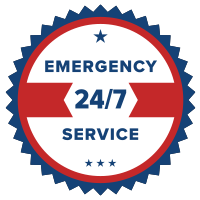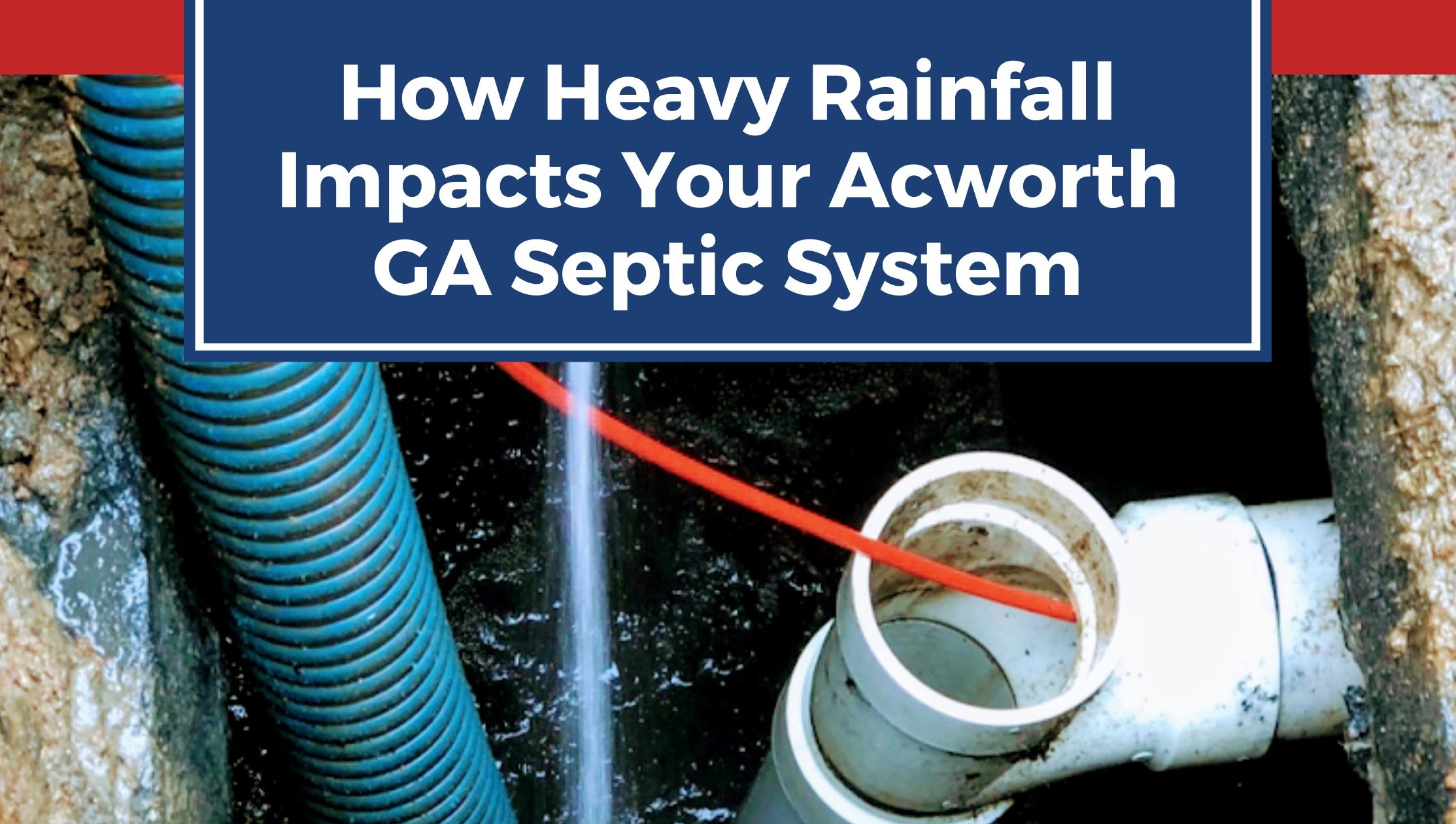Introduction to Heavy Rainfall and Septic Systems in Acworth GA
Acworth, Georgia, with its lush green landscapes and temperate climate, is a charming place to call home. However, the region is no stranger to heavy rain, which can pose a significant challenge to homeowners, particularly those relying on septic systems. A downpour can do more than just dampen your plans; it can profoundly affect the workings of your septic system, potentially leading to costly repairs and health risks. Understanding how heavy rainfall impacts septic systems is crucial for safeguarding your property and ensuring the smooth operation of your household utilities.
Understanding the Basics of a Septic System
A septic system is an underground wastewater treatment structure commonly used in areas without centralized sewer systems. It consists primarily of a septic tank and a drain field. Wastewater flows from the house into the septic tank, where solids settle to the bottom and lighter substances like oil float to the top. The resulting liquid wastewater, or effluent, exits the tank into the drain field, where it percolates into the soil, naturally filtering through layers of earth.
This system relies heavily on the soil’s ability to absorb and treat wastewater, making it vulnerable to changes in environmental conditions, such as heavy rainfall. When the soil becomes saturated with rainwater, it can no longer effectively absorb effluent, leading to potential overflow and system failure.
Effects of Heavy Rainfall on Septic Systems
Heavy rainfall can inundate the soil surrounding the drain field, significantly impacting its ability to process effluent efficiently. When the ground becomes waterlogged, the drain field may fail to absorb and filter the wastewater, causing it to back up into the septic tank or even the household plumbing.
Moreover, excessive rain can lead to soil erosion, further compromising the integrity of the septic system. This erosion can displace pipes or damage the septic tank, exacerbating the risk of system failure. In severe cases, the added pressure from saturated soil can even cause septic tanks to float out of the ground, leading to catastrophic system failure.
Signs Your Septic System is Affected by Heavy Rainfall
- Foul Odors: A noticeable increase in unpleasant smells around your property, particularly near the drain field or septic tank, can indicate system overflow.
- Soggy Ground: If your yard has areas of persistently wet soil or standing water, it could be a sign that your drain field is struggling to absorb wastewater.
- Slow Drains: Water taking longer than usual to drain from sinks, showers, and toilets might suggest that your septic system is overwhelmed.
- Lush Vegetation: While green grass is typically a sign of a healthy lawn, unusually lush vegetation near the septic system could signal a leak or overflow.
If you notice any of these signs, it’s essential to act swiftly to prevent further damage. Contact a professional septic service like One Way Septic for an assessment and necessary repairs. Their expertise in handling septic systems in the Acworth area can offer peace of mind and ensure your system is back to optimal function quickly.
Preventive Measures for Protecting Your Septic System
Taking proactive steps can significantly reduce the impact of heavy rainfall on your septic system. Here are a few key preventive measures you can implement:
- Regular Maintenance: Ensure your septic system is inspected and pumped every three to five years. This routine maintenance can prevent backups and identify potential issues before they become major problems.
- Install a Diversion System: Consider installing rain gutters and drainage systems to direct rainwater away from your drain field. This helps to prevent the soil from becoming oversaturated.
- Limit Water Usage: During periods of heavy rain, try to minimize water usage in your home to reduce the strain on your septic system. Spread out laundry and dishwasher loads to avoid overwhelming the system.
- Landscape Thoughtfully: Plant grass or other vegetation around your drain field to help absorb excess water, but ensure the roots do not interfere with the septic system components.
Why Choose Professional Inspection and Maintenance
Professional inspection and maintenance offers several advantages:
- Expertise: Professionals have the experience and knowledge to identify issues that may not be apparent to the untrained eye.
- Advanced Tools: They have access to specialized tools and equipment that can diagnose and resolve problems efficiently.
- Safety: Handling septic system issues can present health risks, and professionals are trained to deal with these safely.
- Peace of Mind: Regular professional inspections can prevent costly repairs and give you confidence that your system is functioning correctly.
Conclusion and Best Practices for Septic System Care
Maintaining a septic system is crucial for homeowners in Acworth, GA, especially in regions prone to heavy rainfall. By implementing preventive measures, staying vigilant for signs of system stress, and opting for professional inspections, you can protect your property from the adverse effects of severe weather. Always remember that a proactive approach to septic care can save you from the inconvenience and expense of unexpected failures.
Contact Us for Your Septic Needs
If you’re concerned about your septic system or need professional maintenance, One Way Septic is here to help. Located in Acworth, Georgia, we specialize in providing reliable septic services tailored to the unique challenges of our region. Contact us by phone at 404-775-1164, or visit our website to request a service or consultation. Our team is ready to assist you with all your septic needs, ensuring your system remains in top condition all year round.




